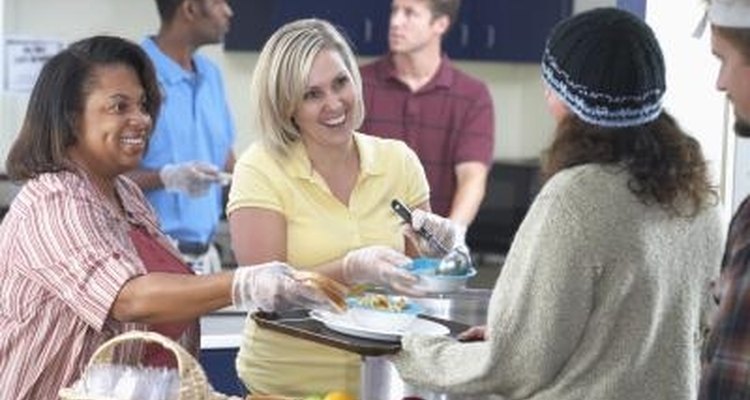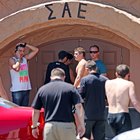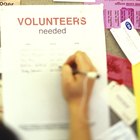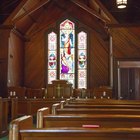
Joining a formal social group that interests you can be fun and rewarding. The structure of formal social groups are defined and often have rules and regulations. This allows the group to accomplish a task or have a specific purpose. These groups will have regular meetings, member registries, official roles for the members, and sometimes dues or fees. Money is an important roll in formal groups, as it helps them accomplish their objectives. There is a wide variety of social groups ranging from volunteer work, economic motivations, work organizations, and religious or political groups.
Civic Organizations
Some of the most popular formal service groups are nationwide programs with local chapters. The Lion's Club is the largest service formal social group in the world. It was started in 1917 to fight blindness, but has expanded to local community projects such as feeding the hungry, helping seniors and the disabled, and caring for the environment. Other formal social groups that specialize in volunteer service work include Civitan International, Key Club and Elks USA.
Neighborhood Association Groups
Neighborhood associations are formal social groups within a geographical location. The purpose of neighborhood associations is to promote and enforce safety, community, neighborhood beautification and education. Often there will be a committee voted upon by the neighborhood to run the association and make budgeting plans. The neighborhood group will meet regularly to conduct business.
Education Groups
Many formal groups aim at educating or advancing its members. The groups will collaborate on a project or have specific purpose. These groups can be formed by the individuals or by educational institutes. Spanish club and a debate team are examples of groups that will gather for the purpose of expanding on classroom instruction and furthering self-improvement. Most general education subjects will have a formal social group.
Parent Groups
The best known formal social group for parents is the National PTA (Parent-Teacher Association). The purpose of this group is to collaborate on projects and ideas that will improve the education of children across the nation and in local communities. Often the group will work on a local level to raise money for school resources, support teacher programs, promote health and safety, and encourage child advocacy.
Political and Religious Groups
Many political and religious formal groups exist for the purpose of making change or sharing a belief. Political parties may gather around election time to promote candidates and encourage voting. Political groups will form around governing beliefs to promote awareness on local and national issues, as well as to stimulate activism. Religious formal groups meet to share beliefs and provide a monetary support system for its group members or charities.
Related Articles

How to Start a Booster Club With Parents

Ideas for Social Committees

How to Start a Men's Social Club

How to Start a Women's Social Club

What Is a Peer Facilitator?

Types of Social Clubs

Early Childhood Social Skills Needed to ...

How to Plan a Tent Revival

How to Be a Good Club President

The Etiquette for a Bridal Luncheon

Teenagers and the Importance of Friends

How to Become a Nutritionist in ...

Duties & Responsibilities of Church ...

List of Community Service Project ...

How to Write a Letter of Intent to ...

What Happens During a School Pep Rally?

College Homecoming Theme Ideas

How to Advertise in Church Bulletins

Cultural Assessment Tools

How to Organize a Motorcycle Rally
References
Resources
Writer Bio
Joe Ashton started writing professionally in 2006. He has more than five years of experience writing and editing in broadcast, print and online journalism for a variety of companies including several television stations. Ashton holds a Bachelor of Arts in mass communication from Idaho State University.
Photo Credits
Brand X Pictures/Brand X Pictures/Getty Images